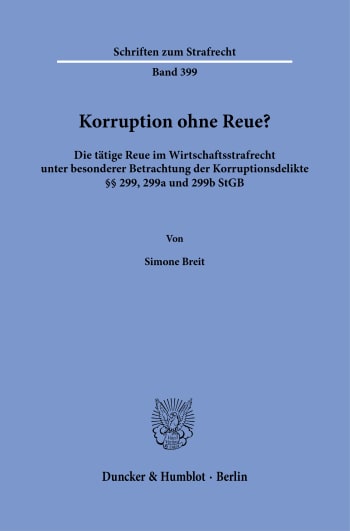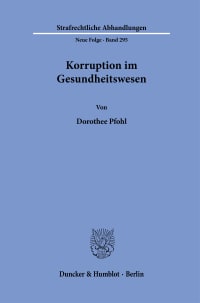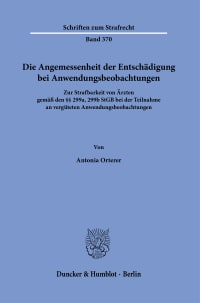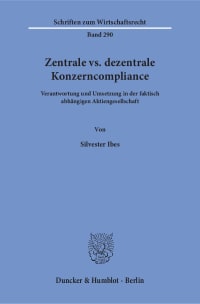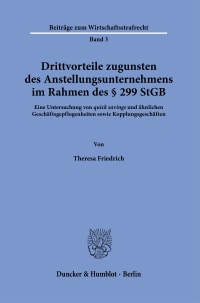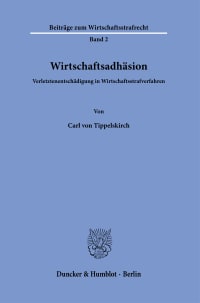Die tätige Reue im Wirtschaftsstrafrecht unter besonderer Betrachtung der Korruptionsdelikte §§ 299, 299a und 299b StGB
Description
»Corruption without Remorse? Active Repentance in Commercial Criminal Law with Special Consideration of the Offenses of Corruption §§ 299, 299a, and 299b StGB«: Neither Section 299 nor Sections 299a and 299b of the Criminal Code contain any regulation on active repentance. This is not unusual, since regulations of active repentance - according to the general opinion - do not follow any systematic. This statement is put to the test by Simone Breit with regard to the offenses of economic criminal law. The connecting factors and criteria identified in the course of the study are then applied to corruption offenses. The work ends with a proposal for a specific regulation on active repentance in the corruption offenses.
Overview
Einleitung und Gang der Untersuchung
Erster Teil: Untersuchungsgegenstand Wirtschaftsstrafrecht
1. Definition des Wirtschaftsstrafrechts: Strafprozessuale Definition — Kriminologische Definitionen — Strafrechtsdogmatische Definition
2. Umfang des Wirtschaftsstrafrechts: Korruptionsdelikte als Wirtschaftsstraftaten — Wirtschaftsstrafrechtliche Regelungen
Zweiter Teil: Tätige Reue im Wirtschaftsstrafrecht im Vergleich
1. Vergleichskriterien: Erfolgs- und Tätigkeitsdelikt — Gefährdungs- und Verletzungsdelikte — Versuch / Vollendung / Beendigung
2. Anwendung der Kriterien auf die Delikte des Wirtschaftsstrafrechts Regelung einer tätigen Reue: § 149 StGB — § 261 StGB — § 264 StGB — § 264a StGB — § 265b StGB — § 266a StGB — § 298 StGB — § 370 AO
3. Nachtatverhalten: Strafbedürfnis — Privilegierendes Nachtatverhalten
Dritter Teil: Korruptionsdelikte und tätige Reue
1. Darstellung und Analyse der Vorschriften: Darstellung der tatbestandlichen Voraussetzungen — Deliktsart — Versuch / Vollendung / Beendigung
2. Die Regelung einer tätigen Reue bei den Korruptionsdelikten: Rechtslage de lege lata — Ausgestaltung einer gesetzlichen Regelung
Vierter Teil: Thesenartige Zusammenfassung der Untersuchungsergebnisse
Literatur- und Stichwortverzeichnis
